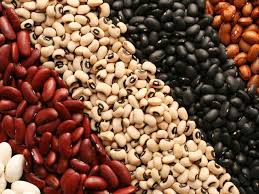Beans are a commonly ignored food that are super healthy, versatile and extremely affordable. Beans are high in fiber, antioxidants, protein, iron, B vitamins, potassium, magnessium, zinc and copper. Eating beans on a regular basis may lower the risk of heart disease, diabetes, colorectal cancer, and helps in managing weight. Beans are hearty, thus helping you feel fuller for long, steering your clear of overeating.
As we age, we require more nutrition and fewer calories, and beans offer exactly that. Half a cup of beans only pack around 100 calories. Even though they may be notorious for making people gassy, that is no reason to cut them out of your diet. Experts recommend that you consume around three cups of legumes a week – since they are excellent for your health. And the more you consume them, the less likely you are to experience tummy problems. Let’s take a look at 13 health benefits of consuming beans.
- Punch of Fiber
Fiber helps to keep the body fit. Don’t eat much during the day. It is one of the most important nutrients in a person’s diet. It improves digestive system and heart health as well. Bean varieties such as kidney, pinto and black are just a few examples of beans are rich in fiber.
Besides, high-fiber content in beans also helps to absorb cholesterol in the digestive tract before your body can absorb it. This means the more beans you eat, the lower your cholesterol levels get. Eating beans three to four times a week can greatly improve your blood pressure, and reduce your risk of heart disease.
- Regulates Blood Sugar Level
If you are developing diabetes or are already diabetic, beans have a low glycemic index. This means that they won’t cause blood sugar levels to spike the way refined grain products can. Since the nutrients in beans are released slowly into the body, they provide energy and prevent the people from being hungry unlike other foods.
- Improves Heart Health
Beans contain fiber for a constant supply of energy. They are also rich in water soluble vitamins especially thiamine, riboflavin, niacin, and folacin. Folate is vital in lowering homocysteine concentrations. Without enough folate in your diet, your homocysteine level increases and can damage your heart and blood vessels. Besides, folate beans also contain a good amount of potassium, calcium, and magnesium, which are healthy electrolytes and minerals. When combined, they help to minimize the risk of heart disease and high blood pressure.
- Reduces Iron Deficiency
Iron deficiency is one of the most common deficiencies in people and the leading cause of anemia. Beans are rich in iron, where half a cup of cooked lentils contains 3.3 mg of iron.
- May Prevent Cancer
Beans are packed with antioxidants, which protect the body against free radicals that could harm your cells and result in cancer. A study published in The Journal of Cancer Research found that women who ate four or more servings of beans a week had a lower occurrence of colorectal polyps, a precursor found in both rectal and colon cancers.
- Boosts Enzymes
Beans contain copper, which is a key mineral when it comes to optimizing the function of several enzymes, which in turn helps make skin pigment and connective tissues.
- Punch of Protein
Around half a cup of beans packs 7 g of protein, the same amount as in one ounce of chicken, fish or meat. Vegans and people who consume red and white meat can easily count on beans as an excellent substitute.
- Prevents Birth Defects
Folate is a mineral that is a must-have for pregnant women or ones who are considering having children. That’s because eating beans can help the baby grow strong in the womb.
- Low in Fat
Most beans are around 2% to 3% fat, and contain zero cholesterol, unless they are processed or prepared with other fatty ingredients like lard. To avoid buying fatty beans, it is best to thoroughly read the labels prior to buying the product.
- Improves Eye Health
In terms of eye health benefits, so many beans consist of zinc, vitamin A and bioflavonoids. Zinc is a vision supporting nutrient that benefits the health of our eyes. Its main role is to convert beta carotene into vitamin A in a form that is usable by visual system and the body. Bioflavnoids are antioxidants that increase eye health by neutralizing free radicals that harm healthy eye cells.
- Controls Your PMS
In a clinical study, women who ate high quantities of beans experienced fewer mood swings and cramps than those consumed the lowest amounts. Flat, yard-long, and yellow-green beans are all amazing sources of manganese, so make sure to incorporate a large handful in your next stir-fry.
- Takes Care of Your Joints
Beans are rich in vitamin K, low levels of which are linked with a higher rate of osteoarthritis in your knees and hands.
- Reduces Depression
Meeting daily folate needs may help cope with depression better. Adequate consumption of folate can prevent a boost in homocysteine production in your body. Too much of this hormone can decrease your blood flow and other key nutrients from traveling to the brain, which in turn can disrupt the production of dopamine, norepinephrine, and serotonin, which regulate sleep, appetite, and mood.
Conclusion and Caution
Beans are one of the most versatile foods out there and very convenient. Canned, dry or frozen, they are affordable, easy to prepare and store. You can even buy them in flour form. In addition to that, beans contain a powerhouse of nutrients including vitamins, antioxidants and minerals, all of which are important to keep the body’s health in optimum state.
Lastly, you can incorporate them in to your diet in numerous ways, including main dish, side dish, snack or even appetizer. You can get as creative as you like and pack on all the essential nutrients without compromising the taste.
(Natural Food Series)

